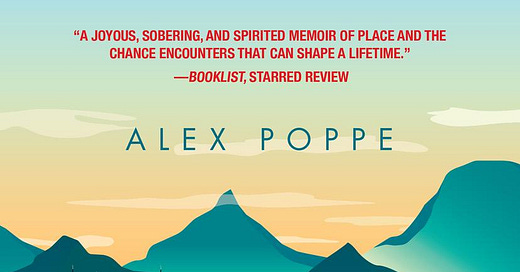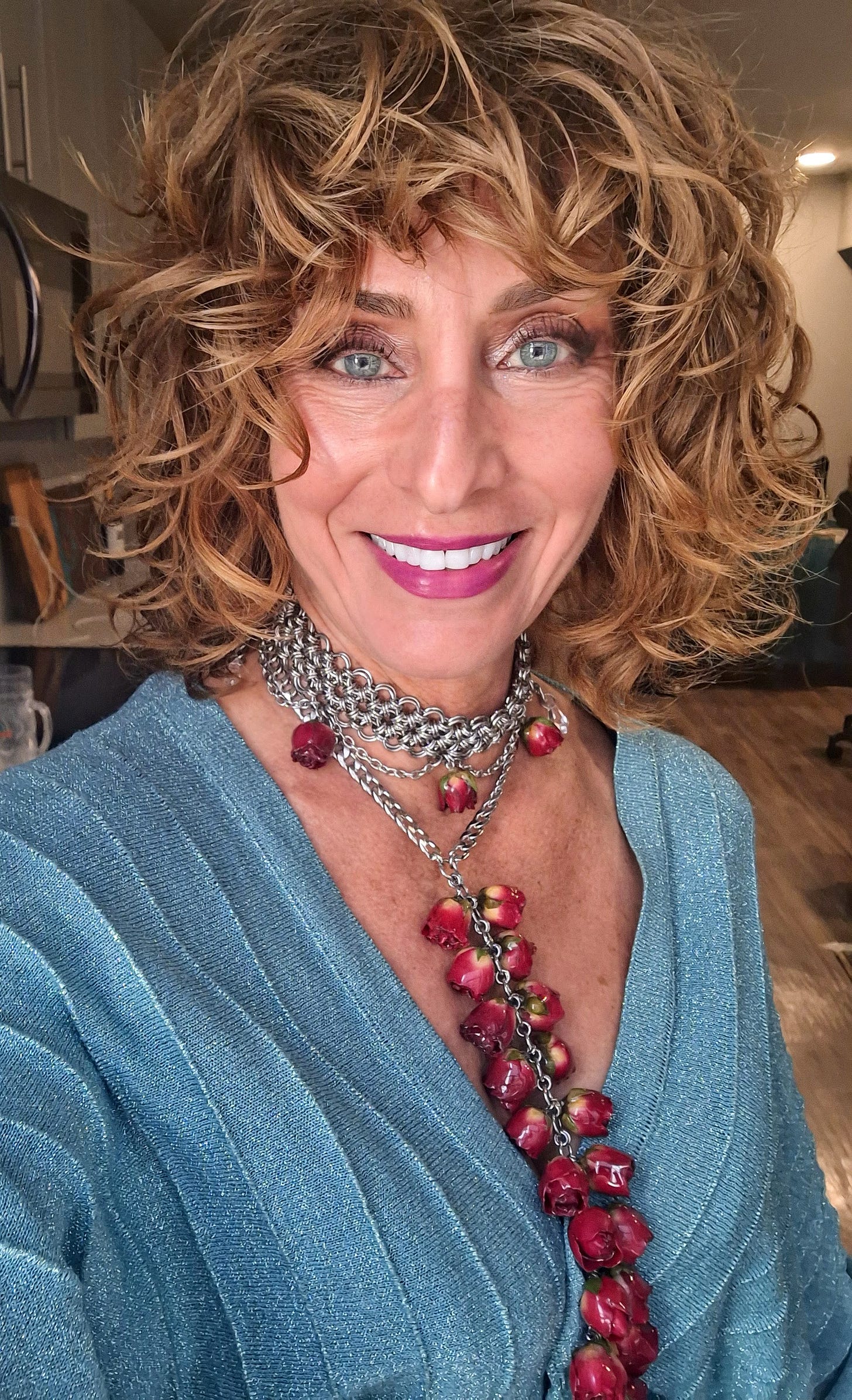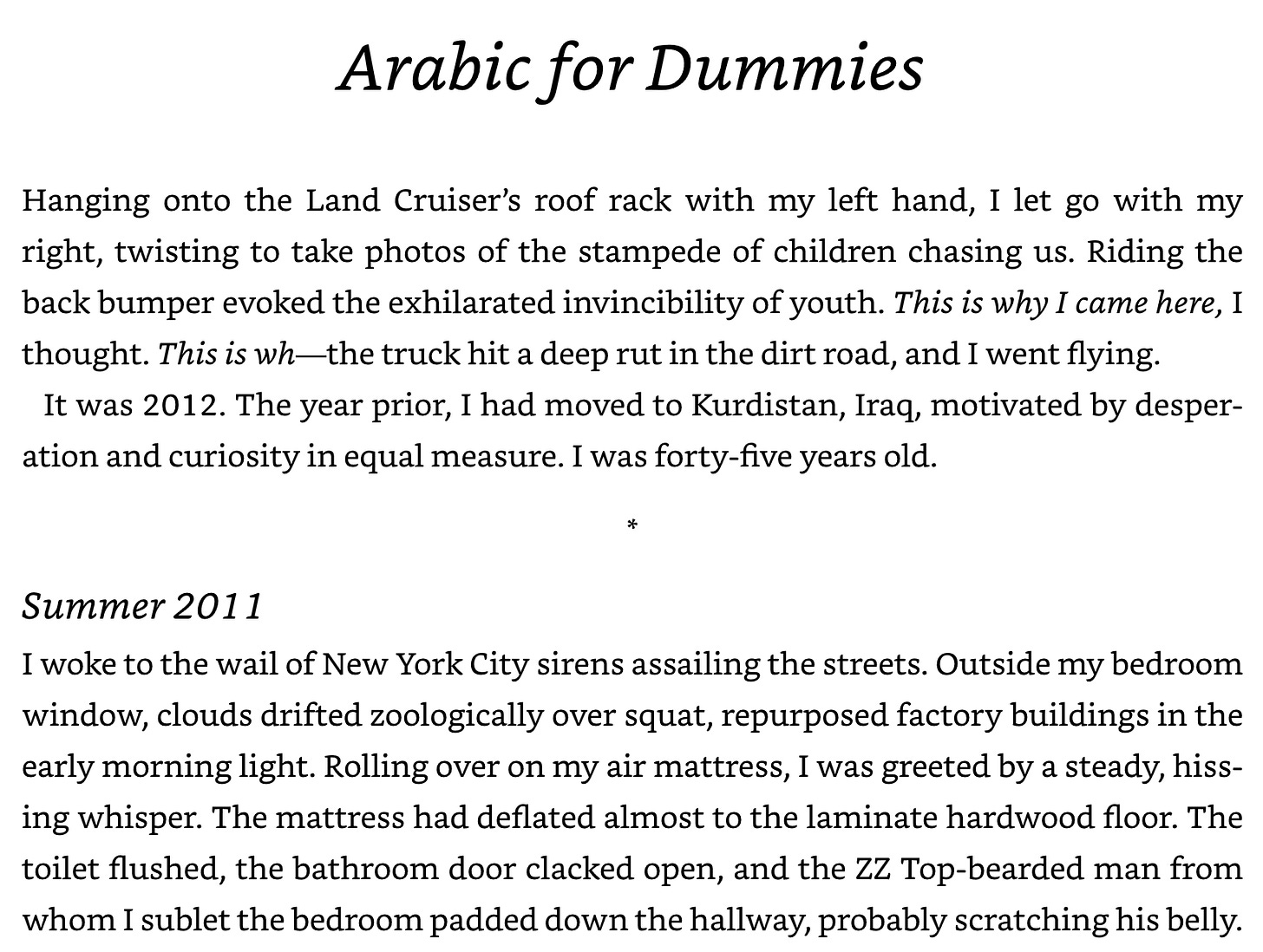Agency and Connection: A Conversation with Novelist and Nonfiction Writer Alex Poppe
"Writing [Breakfast Wine] made me realize what I’ve always wanted is to have experiences, purpose, agency, and connection."
FSG (Farrar, Straus & Giroux) Writer’s Fellowship is open for applications through July 18: A prize of $15,000 will be given annually to an emerging poet, fiction writer, or creative nonfiction writer from an underrepresented community who has not published and is not under contract to publish a book in any genre. Writers who are U.S. permanent residents or U.S. citizens are eligible. The winner also receives mentorship with a Farrar, Straus and Giroux (FSG) author; a line edit and structural feedback from two FSG in-house editors; meet-and-greets with representatives at FSG from other departments, including Publicity/Marketing, Art, Subsidiary Rights, and Managing Editorial; and support with networking beyond FSG. Using only the online submission system, submit 8 to 12 pages of poetry or 40 to 50 pages of prose and a statement of purpose of up to 500 words. No entry fee.
Approaching deadline: the Drue Heinz Prize for a short story collection or a combination of short stories and novellas (150-300 double-spaced pages total), fee free, submissions accepted through June 30. Guidelines and portal to submit here.
A preview of June’s agent list is accessible here. Bookish subscriptions are 25% off.
—
In her immersive and beautifully written new memoir-in-essays (which received a prestigious starred review from Booklist), Breakfast Wine, Alex Poppe offers readers vivid portraits of her experiences teaching and traveling in countries that include Kurdistan, Iraq, and Italy.
As I read Poppe’s new book, I was immediately struck by her sense of humor, especially in the face of the many challenges she encountered while teaching in an international school in Kurdistan.
Sexism was rampant, and her Kurdish students wouldn’t have won any medals for motivation and engagement. The need for extreme caution and discretion in her private life was non-negotiable. Poppe navigates these challenges with enviable patience and diplomacy, and her joie de vivre and first-class mind make Breakfast Wine a sharp, entertaining, and thought-provoking book.
—
Christine/Bookish: Tone is such an important element in writing. You write with humor and pathos about the Kurdish high school students you taught in Iraq, many of them children of the wealthy elite, kids who didn't have the best study habits, to put it mildly. Was your somewhat ironic, self-effacing style with you from the beginning?
Alex Poppe: Of all my writing, the voice in Breakfast Wine is most authentically mine. In fact, I had this cringe moment recently when I was on Nancy Norbeck’s podcast, “Follow Your Curiosity.” I answered a question with a response that was pretty much word-for-word straight from Breakfast Wine. I was like, I hope she doesn’t think I’m quoting myself!
CS: Your subtitle is A Memoir of Chasing an Unconventional Life and Finding a Way Home. Did you plan for the concept of living authentically to be a throughline?
AP: No. I never plan or plot. My writing always reveals what it wants to be because I work beat by beat, starting over and rewriting every day. I wrote the first few essays as standalone pieces to practice the essay form and realized later that they could form a book.
I decided to write [Breakfast Wine] to answer the question of “Why/how did you go to Iraq?”
Finding that answer required me to go back and look at my life. I had always known that I didn’t want convention—husband, house, children—so when I was coming-of-age, I thought I wanted to be an artist, an actor. Writing the book made me realize what I’ve always wanted is to have experiences, purpose, agency, and connection.
I recently met a woman who was contemplating moving to a new city. Her kids were grown, she was in her early 50s, and this was her time. She kept asking me questions about safety in Tulsa as a female on her own, and I realized she was afraid to live her life on her own terms.
She had always lived her life at the convenience of someone else. I was excited for her to take this leap and sad for her that she hadn’t already done so at some point in her life, and I realized how much privilege I have had because being single, which has some drawbacks, has allowed me to live my life, more or less, on my own terms.
CS: You lived in New York City for a while after college, where you worked for a time as an actor, before moving to Iraq for a teaching job at an international school. Not a biography you hear every day! Regarding the essays in Breakfast Wine, they’re what I'd call a hybrid of memoir and sociopolitical critique. Does this sound accurate to you?
AP: I hadn’t written essays before—some creative nonfiction—but not really essays. When I started writing essays, I was also studying the form, so the pieces that I wrote first, such as Chapter 8 about Luke*, his death, the Asayish’s [Kurdistan’s intelligence and special security police] investigation, and the Pakistani couple with the drug lab in their house, reads more like creative nonfiction than essay.
I was trying to make sense of all I had experienced. There’s a line in Breakfast Wine about seeing Luke, sweaty and clammy the night before he died and realizing later, only when I was writing “The Impossible Do-Over,” what I had really seen.
“Five Weeks,” the essay about unknowingly working alongside one of Sweden’s most notorious sex offenders at the international school, is a better representation of memoir/sociopolitical critique because I intentionally extrapolated outward to themes of carceral systems, patriarchy, and moral distance, which underpin some of the most Draconian actions coming out of our current administration concerning immigration and unlawful deportation.
CS: Do titles come naturally to you? A few that especially stand out—"Men Grow Old and Have Bored or Stupid Sons" and "All Together Now, Penis!”
AP: I took a cue from the TV show Frasier to find the tone of the essay titles and then looked for sentences from the essays that mirrored that tone. “Men Grow Old and Have Bored or Stupid Sons” comes from a Herbert Butler essay I was reading when I was studying essay form. It made me laugh, and captured the essence of the 19-hour war in Kirkuk that had devastating consequences for the Sulaimaniyah region of Kurdistan, all to serve one man’s desire for legacy and greatness.
CS: Along with Breakfast Wine, you've published one novel, one novella, and two short story collections. Were you writing the essays in Breakfast Wine as you wrote those other books? I'm impressed by your ability to write both fiction and nonfiction with such insight and skill.
AP: I used to write book by book because once I heard the narrative voice in my head, it kept talking, wanting to maintain center stage in my conscious mind. My first creative nonfiction pieces were written between my first and second books when I was unsure which direction to take with fiction projects.
I started a new novel of literary fiction last summer, which I haven’t worked on this year, but plan to revisit. I have had a few pieces, two essays and one op-ed published this year, so I am finally developing the discipline required to toggle between writing literary fiction and nonfiction.
CS: Why should people read Breakfast Wine?
AP: When I was at the Can Serrat International Art Residency [Montserrat, Spain], I fielded questions about what I wore [while living in Kurdistan] to how I dated to where I went for entertainment. Everybody was really surprised to learn about the similarities across cultures.
I hope curiosity leads people to Breakfast Wine, and people leave Breakfast Wine with the feeling that so much more unites us than divides us. I use the word “feeling” intentionally because feeling is essential to encourage compassion and empathy.
It motivates how we vote more so than issues do. I would love for the stories in Breakfast Wine to engender empathy and understanding for people who are fleeing poverty and violence.
*Not their real names
Excerpt from Breakfast Wine:
*






Nice interview! I enjoyed!